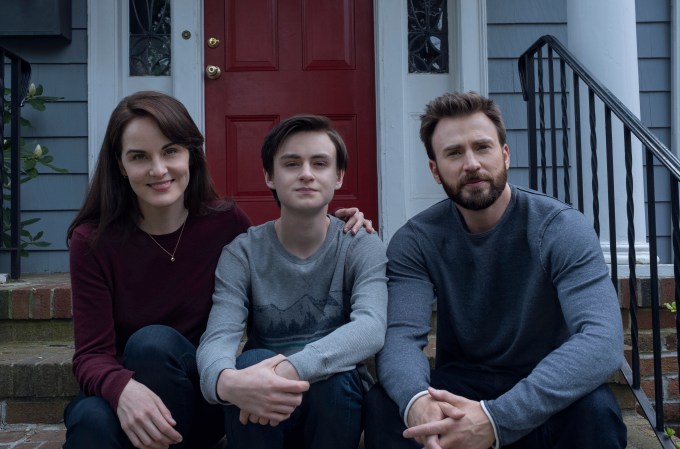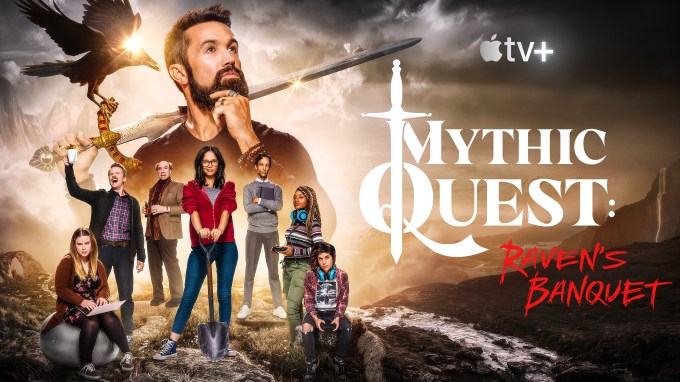Apple has scored more big names for its newly launched streaming service, Apple TV+, including “Veep” and “Seinfeld” star Julia Louis-Dreyfus, as well as Meryl Streep, the latter who’s attached to an animated short film about Earth Day, set to premiere on April 17. In addition, Apple has now announced several new series for Apple TV+, plus renewals and premiere dates for others.
The upcoming Earth Day film, titled “Here We Are: Notes for Living on Planet Earth” will also star the voice talents of “Room” actor Jacob Tremblay as a 7-year old child who learns about the planet, and Chris O’Dowd and Ruth Negga as his parents. Streep will provide the voiceover narration.

Meanwhile, Louis-Dreyfus hasn’t announced specific details of her projects. Apple says she’s inked an overall deal with Apple TV+ as both an executive producer and star — her first overall deal with a streaming service. Under the multi-year agreement, Louis-Dreyfus will create multiple new projects exclusively for Apple TV+.
Joked the actress: “I am thrilled about this new partnership with my friends at Apple. Also, many thanks and kudos to my representatives for structuring the deal in such a way that I am paid in AirPods,” she said.
Apple has previously signed other overall deals with names like Alfonso Cuaron, Kerry Ehrin, Jon M. Chu, Justin Lin, Jason Katims, Lee Eisenberg, as well as studios A24 and Imagine Documentaries, and Oprah.
In addition to the big-name talent grabs, Apple also on Friday announced a new documentary series, “Dear…,” from Emmy and Peabody winner R.J. Cutler. Due out this spring, the series will profile internationally known leaders including Oprah Winfrey, Gloria Steinem, Spike Lee, Lin-Manuel Miranda, Yara Shahidi, Stevie Wonder, Aly Raisman, Misty Copeland, Big Bird (uh, what?) and others.
This is not Apple TV+’s first documentary. It’s currently airing the Peace Award winner “The Elephant Queen,” about a tribe of African elephants. And while not a documentary, per se, the service is also now featuring real life-inspired tales of immigrants in the U.S. in the Apple TV+ anthology series, “Little America” which have a documentary-like vibe. Other documentary series and films in the works include “Visible: Out on Television” “Home,” “Beastie Boys Story” and “Dads.”
Newly announced “Visible…,” exec-produced by Ryan White, Jessica Hargrave, Wanda Sykes, and Wilson Cruz focuses on the LGBTQ movement and its impact on television. Premiering on Valentine’s Day (Feb. 14), the series will also feature narration from Janet Mock, Margaret Cho, Asia Kate Dillon, Neil Patrick Harris, and Lena Waithe.
Another new show is “Central Park,” an animated musical comedy from Loren Bouchard (“Bob’s Burgers”), executive producer Josh Gad (“Frozen”) and executive producer Nora Smith (“Bob’s Burgers”), will arrive this summer. The show features a family that lives in Central Park, the Tillermans, and includes a voice cast with the talents of Josh Gad, Leslie Odom Jr., Kristen Bell, Kathryn Hahn, Tituss Burgess, Daveed Diggs, and Stanley Tucci. The animation style has the distinct look of “Bob’s Burgers” as well.

Apple’s first original series from the U.K., “Trying,” will premiere on May 1st globally. This series stars Rafe Spall and Esther Smith, hails from BBC Studios, and was written by Andy Wolton. As the name hints, the story is about a couple — Jason and Nikki — who are trying to have a baby. But Apple describes the show’s larger theme as one about “growing up, settling down and finding someone to love.”

A new thriller, “Defending Jacob,” based on the 2012 NYT bestseller of the same name, will premiere April 24.
The limited series stars Chris Evans, Michelle Dockery, Jaeden Martell, Cherry Jones, Pablo Schreiber, Betty Gabriel, and Sakina Jaffrey, and tells of a shocking crime that rocks a small Massachusetts town. The story follows an Assistant District Attorney who is torn between duty to uphold justice and his love for his son. Academy Award winner J.K. Simmons guest stars.

Apple also announced its live-action comedy that follows a team of video game developers, “Mythic Quest: Raven’s Banquet,” has been renewed for a second season ahead of its global premiere date of Feb. 7.
The show was co-created by Rob McElhenney, Charlie Day and Megan Ganz, and also stars McElhenney as the fictional company’s creative director, Ian Grimm.

Other shows awarded a second season include “Little America,” “Dickinson,” “See,” “Servant,” “For All Mankind,” “The Morning Show,” and the soon-to-premiere “Home Before Dark.”
Despite not sharing any sort of viewership data — even with the shows’ stars — the renewals speak to Apple’s confidence in its original programming.
“Home Before Dark” is a dramatic mystery series featuring young investigative journalist, Hilde Lysiak, and is exec-produced by Jon M. Chu. Based on the real-life kid reporter of the same name, the series takes Hilde’s story into fictional territory by telling a tale of a young girl who moves from Brooklyn to a small lakeside town where she ends up unearthing a cold case that everyone in town, including her dad, has tried to bury. The real Lysiak, however, runs an online news operation, Orange Street News, which made headlines when the then 11-year old girl scooped local news outlets by being the first to expose a murder in her hometown of Selinsgrove, PA.

Steven Spielberg’s “Amazing Stories” has also now been given a premiere date of March 6. The rebooted anthology series is run by Eddy Kitsis and Adam Horowitz (“Lost”), and features episode directors Chris Long (“The Americans,” “The Mentalist”), Mark Mylod (“Succession,” “Game of Thrones”), Michael Dinner (“Unbelievable,” “Sneaky Pete”), Susanna Fogel (“Utopia,” “Play By Play”) and Sylvain White (“Stomp The Yard,” “The Rookie”).

Also previously announced, Apple set a premiere date for the new documentary series “Home,” which will air on April 17. The series offers viewers a look inside some of the world’s most innovative homes around the world.

Though only two months old, Apple TV+ has already landed its first Hollywood industry award, as “The Morning Show” star Jennifer Aniston snagged a SAG Award for best female actor in a drama. Co-star Billy Crudup also won a Critics’ Choice Award for best-supporting actor.
“The Morning Show,” meanwhile, had been nominated for three Golden Globes, but didn’t win. However, the Globes largely snubbed streamers this year with Netflix earning only two wins, despite 34 nominations.

Source: Tech Crunch









